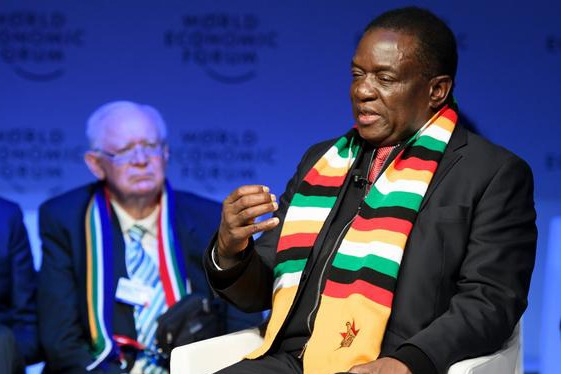
PRESIDENT Emmerson Mnangagwa’s new administration has, since its inception late year, made several pledges and overtures aimed at wooing international investors and portraying the new leader, as the new game changer in town.
Mnangagwa has announced several changes in various sectors of the economy and in the process, won himself domestic and international admiration. But, one thing that has remained a thorn in the flesh for this former jewel of Africa, is its overburdening tax regime.
On that front, the government has made cosmetic changes, which we believe will not make much impact to make the country a competitive investment destination.
Zimbabwe’s tax system has, according to the 2017 Index of Economic Freedom published by The Heritage Foundation, a United States-based think-tank, remained a huge burden to the economy at 61,1%.
What that means is that from the $14 billion economy, about $8,55 billion is consumed in one form of tax or the other from both official and unofficial channels.
That Zimbabwe is ranked 42nd on the continent and 11th in Sadc, in terms of tax regimes should be the administration’s concern if ever they are to make the country one of the continent’s best investment destinations.
Businesses and the tax paying public have long complained about taxes as being exorbitant and unaffordable. And, perhaps one example which embodies how high Zimbabwe’s tax system is, are the levies for fuel.
As it stands, taxing on fuel involves a plethora of charges, that is, the free on board, freight, duty, Zinara road levy, carbon tax, debt redemption, strategic reserve levy and storage charges.
- Chamisa under fire over US$120K donation
- Mavhunga puts DeMbare into Chibuku quarterfinals
- Pension funds bet on Cabora Bassa oilfields
- Councils defy govt fire tender directive
Keep Reading
So high are these charges that from the pump price of $1,37 on petrol and $1,36 on diesel 50, 35,19% and 47,87% are taxes, respectively.
As a result, Zimbabwe’s fuel is the most expensive in the region due to these costs.
Even the presumptive taxes charged on informal traders are unjustifiably high, considering this is a sector made up of people locked out of formal employment but trying to eke a living.
The world’s biggest economy, the United States, is considered to have a high tax regime by the country’s President, Donald Trump, but due to its ability to subsidise, it offers tax incentives, and unemployment being at 4,1%, the economy is able to perform.
Of course, while taxes form the backbone of any economy, the high levies with no corresponding incentives remain an economic impediment.
On top of that, salaries are taxed at about 12,3% of earnings.
Finance minister Patrick Chinamasa in his 2018 National Budget tried to throw in a few incentives such as extending rebate of duty on capital goods for tourism operators, duty free import of capital equipment for manufacturers and fiscal concessions towards power generating projects.
The budget even contained incentives for small-to-medium enterprises which involved government ring-fencing $5,4 million of projected revenue from presumptive taxes for on-lending to small and medium enterprises.
But these efforts fall short of public and investor expectation, if they are not matched with corresponding economic improvements.
Instead, what is required is for the government to offer more incentives targeting critical growth sectors and subsidising revenue by growing those critical sectors that can have a ripple effect in growing the economy.











